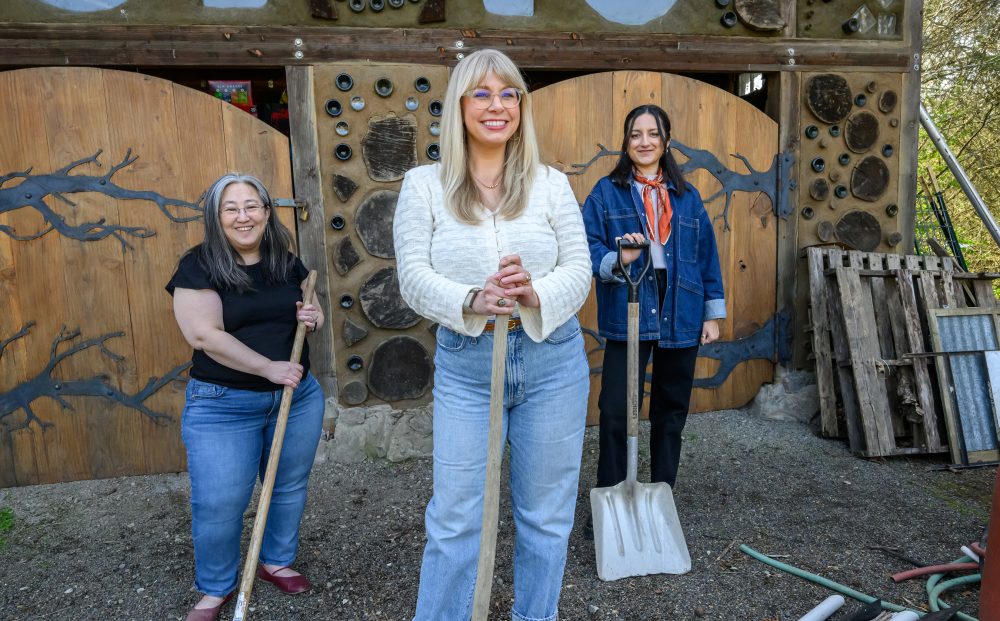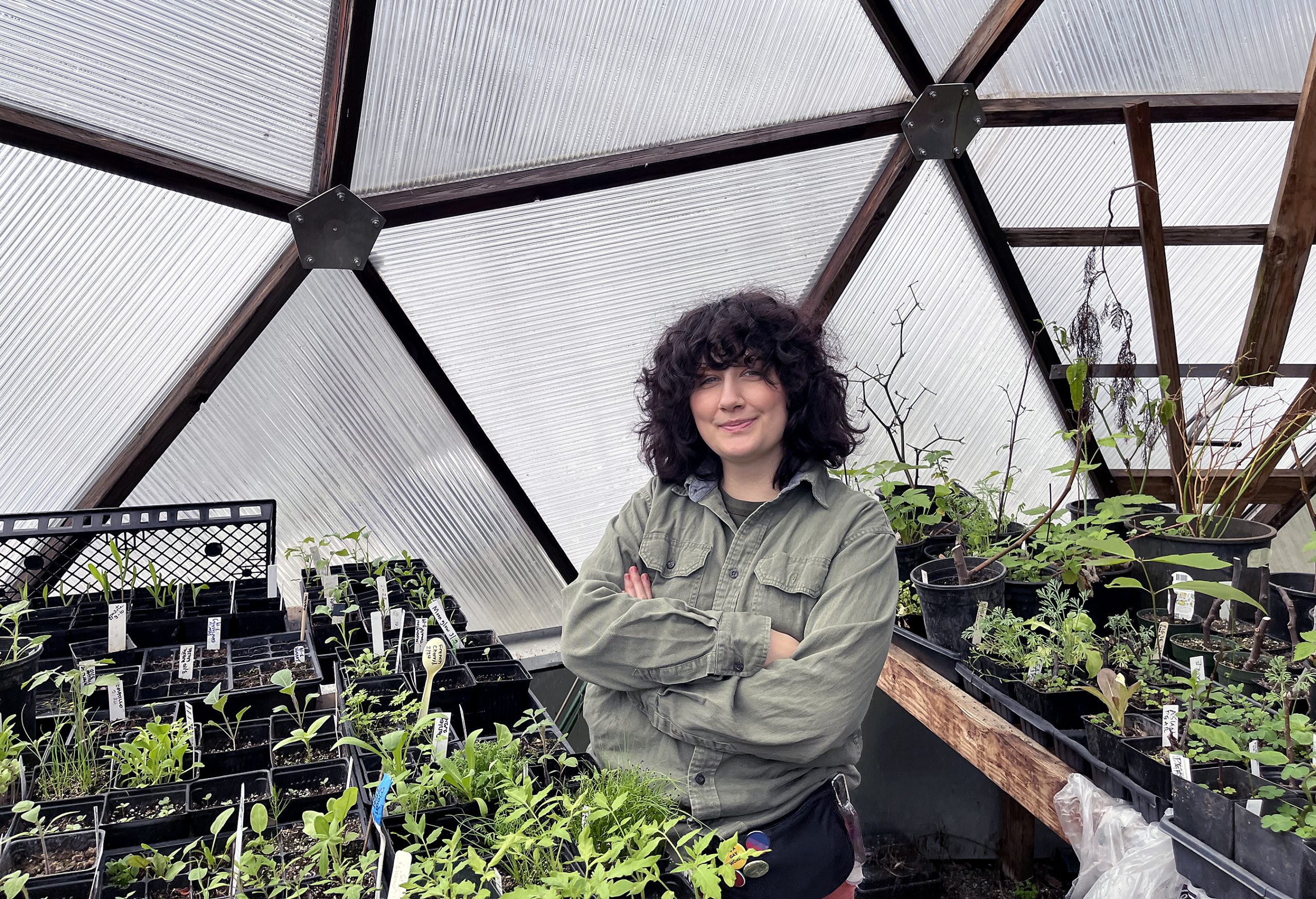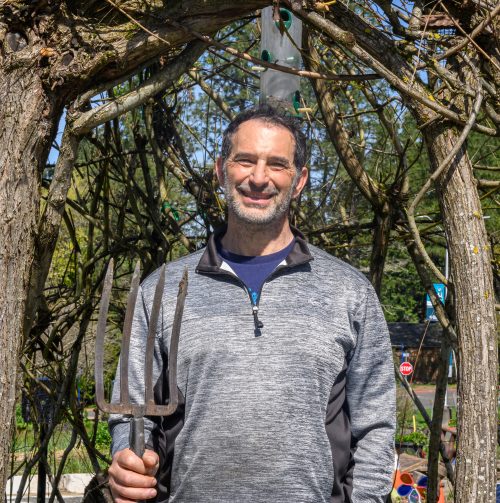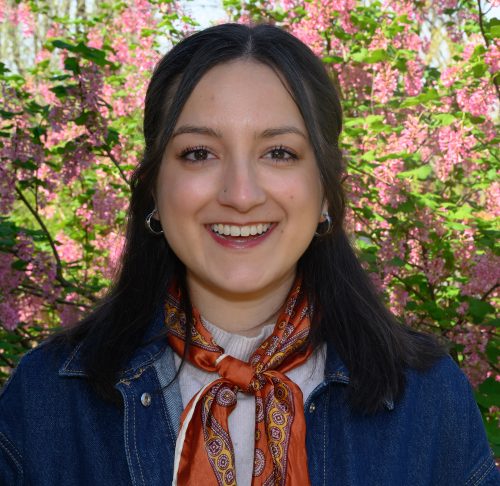PCC on track to meet Climate Action Plan goals through data and community effort
Story by James Hill and John Workman. Photos by Ric Getter and Misty Bouse.

From left, Steph Fregosi (sustainability analyst), Briar Wray (associate dean of Sustainability Strategies) and Jade Menchaca (sustainability coordinator).
Portland Community College is closing in on a major milestone in its commitment to sustainability.
As the 2026 deadline for its current Climate Action Plan approaches, the college’s Sustainability Program is well on its way to meeting several key goals—ranging from emissions reductions and waste diversion to community education and carbon neutrality. Jade Menchaca, PCC’s sustainability coordinator, highlighted the program’s recycling and composting initiatives across the college’s district.
“I collect all of our waste data throughout the district—trash, recycling, and compost,” Menchaca explained. “At the end of the year, we calculate the greenhouse gas emissions associated with our waste and determine diversion rates.”

Climate Action Success
In March, PCC submitted its fifth AASHE STARS report, evaluating sustainability across academics, engagement, operations, and planning. PCC’s strong performance—especially in student engagement and climate action—resulted in the college achieving STARS Gold for the first time. PCC is a consistent top performer among associate and short-cycle institutions.
One major advancement has been in construction waste diversion. Thanks to collaboration with the Planning & Capital Construction department, PCC has implemented policies to keep waste from building projects out of landfills. The effort has paid off: approximately 75%, and sometimes as much as 90%, of this waste is now diverted away from landfills.
“It’s a huge partnership,” Menchaca said. “A lot of waste comes from those construction projects and they’re really working hard to divert that.”
Energized Transition
The push toward renewable energy has also gained significant ground. Since the Climate Action Plan went into effect, PCC has installed solar arrays and expanded its fleet of electric vehicles (EVs) to a dozen, bringing the college to 50% carbon neutrality.
“We’re definitely on track to meet our 100% carbon neutral goal by 2040,” Menchaca said, calling the progress “exciting.” The college uses the EVs for cross-collaboration among its programs to foster student success. For example, three are in operation by the college’s network of Panther Pantries to distribute food to students.
Education and Engagement
Beyond infrastructure changes, the college is putting a strong emphasis on education and student empowerment. Peter Ritson, coordinator of PCC’s Environmental Center and a longtime educator, is focused on building resilience within the community.
“PCC is a huge part of the community,” said Ritson, who helps to coordinate the college’s learning gardens.
The gardens serve as a hands-on educational tool, teaching students how to grow food, save seeds, and understand the implications of food insecurity in the context of climate change.
“Being able to work with students on being self-sufficient is a huge one,” he said. “Teaching people about food resources, either external ones or growing food, is critical.”
Tracking Progress
While the public sees the visible changes on campus, a great deal of support happens behind the scenes through rigorous data analysis. Stephania Fregosi, a sustainability analyst at PCC, is responsible for collecting and analyzing the environmental and social data that informs the department’s decision-making.
“There’s three different kinds of scopes that we track,” Fregosi said. “Scope one is the most directly in PCC’s control and the most accurate. Scope three, on the other hand, includes the biggest impacts—like student commuting and purchases—but is the hardest to control and track.”
Even in these more challenging areas, Fregosi remains optimistic.
“We’ve set up clear pathways for almost all these things to happen,” she said. “I just don’t know if it’s exactly by 2026, but I am feeling very optimistic about it.”
What’s Ahead — Earth Week
While the current Climate Action Plan nears its endpoint, the work is far from over. PCC updates its climate strategy every five years, and preparations for the next version are already in motion.
“We’ll be starting the update toward the end of this year so we can publish it by 2026,” Menchaca said. “Our overall goal is for the college to achieve carbon neutrality by 2040.”
And don’t forget that PCC is gearing up for Earth Week with a full lineup of sustainability-themed events across its campuses from April 21-25. Students, staff, and community members are invited to join in the weeklong celebration, which highlights environmental awareness, education, and engagement.
A key feature of the festivities is a series of daily tabling fairs, taking place from 11 a.m. to 2 p.m. at each of PCC’s main campuses. Attendees can explore a variety of booths offering giveaways, hands-on activities, and resources centered on sustainability and climate action.
The full calendar of events can be viewed at pcc.edu/earthweek.


